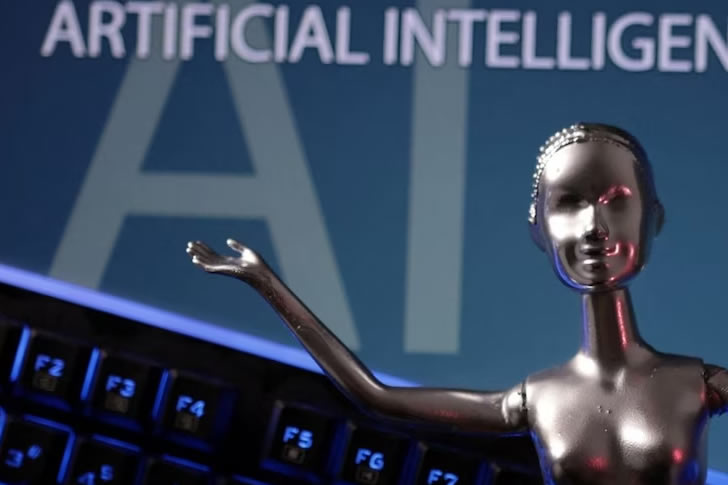Artificial Intelligence (AI) is transforming education. Here’s a guide to navigate AI courses and integrate AI effectively into your learning journey.

Artificial Intelligence (AI) has been making waves in various fields, and education is no exception. It's reshaping the way we teach, learn, and manage educational programs. Embracing AI can lead to a more personalized, efficient, and effective educational experience. But how can educators and students navigate this new landscape? Let’s explore the essentials.
AI-driven technologies like adaptive learning platforms, smart content creation, and automated administrative tasks are becoming commonplace in educational institutions. These technologies:- Personalize learning experiences.- Provide fast feedback.- Streamline administrative processes.- Support teachers with tailored content.
By integrating AI, educational institutions can improve student outcomes and operational efficiency.
Picking the right AI courses is crucial for both educators and students. Here are some tips to help you make an informed choice:
What do you hope to achieve with AI? Are you looking to enhance your teaching methods, understand AI's role in education, or develop AI-based educational tools? Clarifying your goals will help you select the very relevant courses.
Ensure that the course is offered by a reputable institution or organization. Look for courses endorsed by renowned universities, tech companies, or professional bodies related to education and AI.
Review the syllabus and course structure. Does it cover fundamental AI concepts? Does it offer practical applications specifically in education? Look for courses that balance theory with hands-on practice and case studies.
Consider your schedule and learning pace. Online courses often provide more flexibility, allowing you to learn at your own pace. Check if the course duration and commitment level match your availability.
Finding platforms that offer quality AI courses specifically tailored for education is crucial. Here are some popular options:
Coursera partners with top universities and organizations to offer courses on AI and its applications in education. Courses like "AI in Education" from the University of Helsinki and "Introduction to AI" from Stanford provide a robust foundation.
edX offers a wide range of AI courses from leading institutions. MIT’s "AI: Implications for Business Strategy" includes modules on education, focusing on strategic integration of AI.
Udacity’s "Artificial Intelligence Nanodegree" program is extensive, covering AI basics to advanced topics. Though not solely focused on education, it provides a comprehensive understanding that can be adapted to educational contexts.
Khan Academy provides affordable resources and courses that cover the basics of AI, perfect for beginners. It’s a great starting point before delving into more specialized AI in education courses.
AI is a rapidly evolving field. Follow industry blogs, join educational AI forums, and participate in webinars and conferences to stay updated with the latest developments and applications in education.
Hands-on experience is vital. Try to apply AI concepts in real educational settings. Design small projects, use AI tools in your classroom, or collaborate on AI-based educational research.
Networking with peers can significantly enhance learning. Join online communities, attend meetups, and participate in discussion groups focused on AI in education. Sharing experiences and solutions can broaden your understanding and open up new opportunities.
Integrating AI in education comes with its challenges. Here are some common obstacles and how to overcome them:
AI systems often require vast amounts of data, raising concerns about student privacy and ethical use. It’s essential to follow strict data protection policies and ensure transparency about how data is used.
Educators may feel daunted by the technical skills required to implement AI. Continuous professional development and collaboration with AI experts can bridge this gap.
Implementing AI technologies can require significant investment in hardware and software. Seek funding opportunities or partnerships with tech companies to mitigate costs.
Adopting AI in education isn’t just about understanding the technology; it’s about leveraging it to create more engaging, personalized, and effective learning experiences. By carefully selecting suitable AI courses, staying informed, and actively engaging with the community, educators and students can harness the full potential of AI to transform education for the better.
Start your journey today and embrace the future of education powered by Artificial Intelligence (AI).
Explore the Tranquil Bliss of Idyllic Rural Retreats

Ultimate Countdown: The 20 Very Legendary Gaming Consoles Ever!

Understanding Halpin and its Influence

Affordable Full Mouth Dental Implants Near You

Discovering Springdale Estates

Illinois Dentatrust: Comprehensive Overview

Embark on Effortless Adventures: Unveiling the Top in Adventures Made Easy Outdoor Equipment

Unveiling Ossur Valves: Innovation in Prosthetics

Unlock the Full Potential of Your RAM 1500: Master the Art of Efficient Towing!
